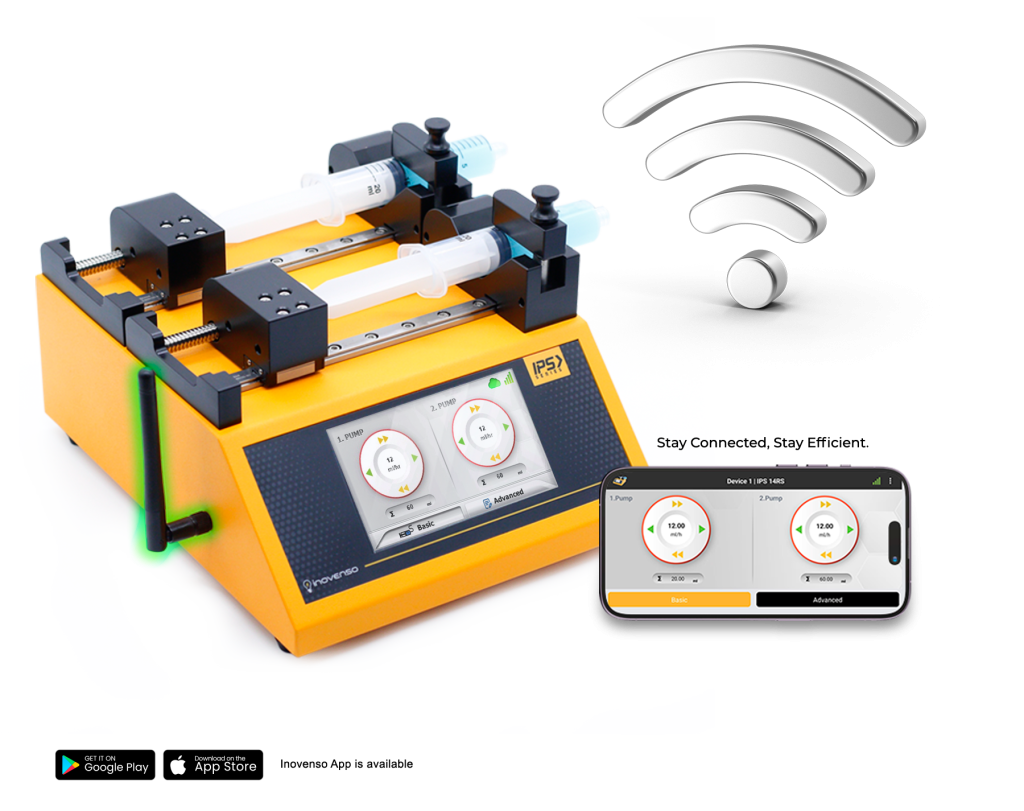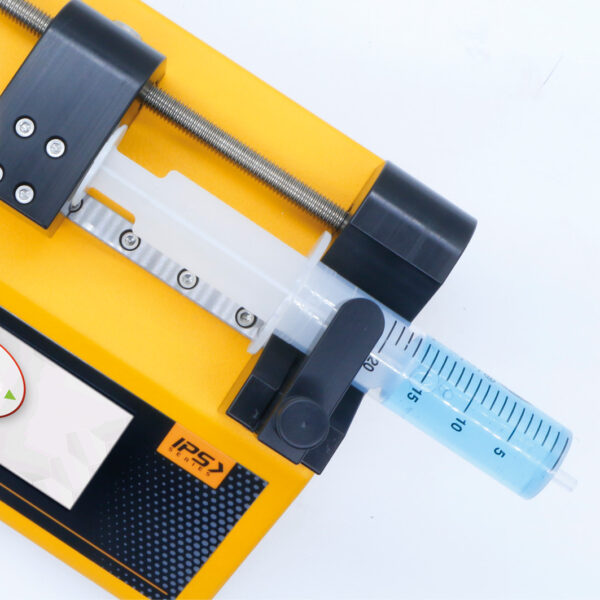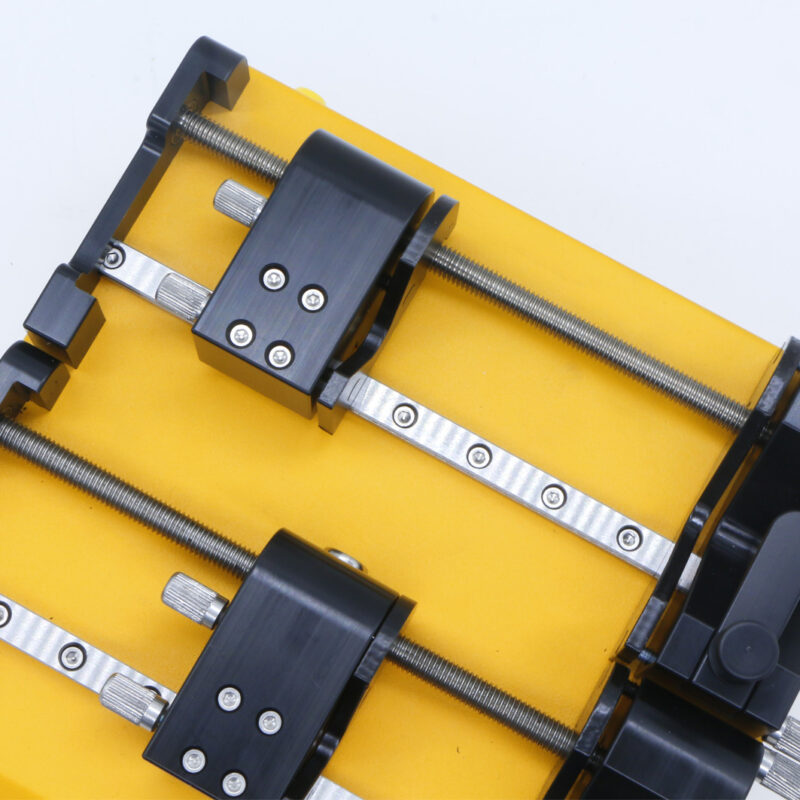Introduction to Peristaltic and Syringe Pump
A syringe pump is a laboratory device designed to deliver precise and consistent volumes of liquid through a syringe. Therefore, it is essential for applications that demand high accuracy in flow rates. In contrast, a peristaltic pump works by compressing flexible tubing to move fluids, and as a result, it offers continuous flow without direct contact between the pump and the sample. Taken together, these two pump types cover a broad range of laboratory and industrial needs, ranging from delicate microfluidic experiments to robust large-scale processes.
The Inovenso IPS series syringe pumps, on the other hand, stand out because they combine unique design, superior accuracy, and an intuitive user interface. In addition, the built-in Wi-Fi connectivity enables remote monitoring and control. Consequently, your experiments become more efficient, safer, and far more flexible. Unlike conventional systems, Inovenso pumps integrate precision engineering with smart technology. As a result, researchers and industrial users gain the ability to scale, synchronize, and streamline their workflows with confidence.
Models
The IPS-12 Single Channel Syringe Pump stands out as a programmable system that delivers a wide flow range from 1.17 pL/min to 75.945 mL/min. Moreover, it supports syringes from 0.5 µL to 140 mL.
Moving on to the IPS-13 Dual Channel Syringe Pump, its dual-channel operation enables simultaneous flow control and significantly boosts efficiency in multi-channel applications. Furthermore, it supports a broad range of syringes, while the integrated touch-screen interface ensures both flexibility and ease of use.
By contrast, the IPS-14 Independent Double Channel Syringe Pump offers advanced dual-channel functionality with full independent channel control. Consequently, researchers can design highly flexible multi-fluid experiments. In addition, its wide flow range and intuitive interface make it the ideal choice for complex laboratory workflows that demand both precision and adaptability.
Finally, the IPS-15 and IPS-16 Syringe Pumps with Wi-Fi Connectivity. These models also include built-in Wi-Fi connectivity and integrate seamlessly with the Inovenso mobile app (available on the Apple App Store and Google Play). As a result, researchers can monitor and control pumps from anywhere. In addition, they can group multiple units together and assign synchronized tasks






